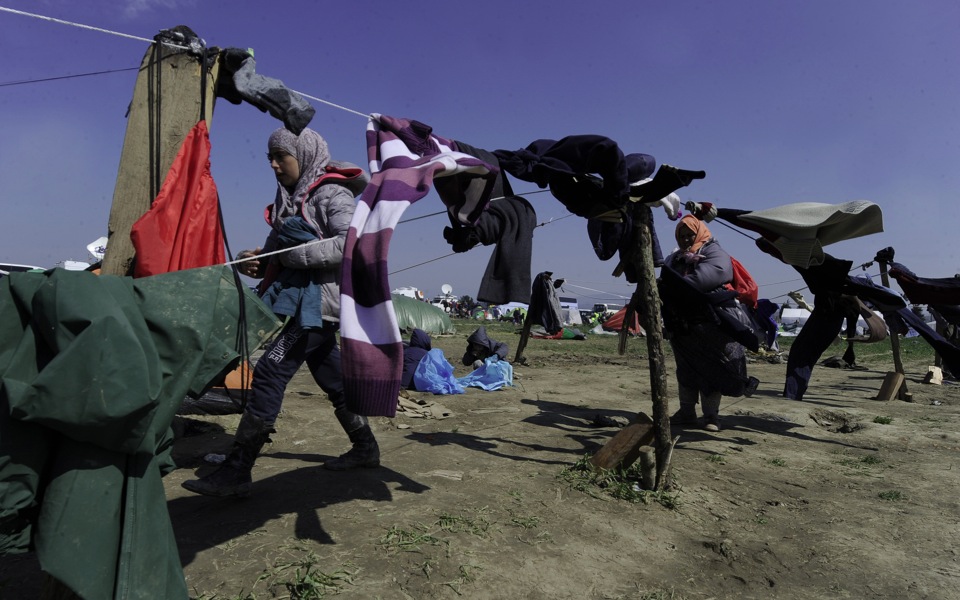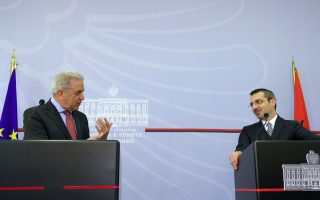Migration deal: Quick start, tough implementation

Government officials in Greece signaled Saturday that implementation of a migration agreement between the European Union and Turkey could only occur gradually, with key details still to be worked out on how migrants newly arriving from Turkey will be processed and returned.
Prime Minister Alexis Tsipras was meeting with ministers and senior officials involved in the migration crisis, hours after the deal was reached in Brussels to send back migrants arriving on the Greek islands to Turkey, starting Sunday.
Yiannis Balafas, the deputy interior minister, said swift screening procedures in the Greek islands would require additional staff promised by the European Union.
“(Migrants) will be returned after they have been swiftly processed. That is why we need the technical assistance,” Balafas told private Mega television.
Greece is expecting some 2,300 European experts, including migration officers and translators, to help implement the deal.
“Obviously, none of those people have arrived yet,” a government official told the AP, asking not be identified pending official announcements. “What we have at the moment is a political decision. This must now be put into practice.”
Migrants on Lesvos and other islands in the east Aegean Sea were being taken by ferry to the mainland ports of Piraeus and Kavala where they will be placed in shelters and eligible for an EU-wide relocation program. Those who arrive on the islands from Sunday onward will be screened and their identity recorded and then sent back to Turkey.
At the Greek-Former Yugoslav Republic of Macedonia (FYROM) border Saturday, no new arrivals were reported by relief agencies at a giant makeshift camp near the border village of Idomeni.
Migrants took advantage of a break in bad weather to wash clothes and sought information on the EU-Turkey deal – responding with a mixture of relief and disappointment, with Balkan borders to remain closed but with most migrants already on Greek territory made exempt from plans for swift deportation.
Mohamed Tamer spent three weeks camped out at Idomeni, hoping to travel onto Berlin where his sister lives.
On Saturday, he decided it was time to leave.
“I will try and apply with the EU relocation service,” he told the AP before boarding a bus for Athens. “The decision made in Brussels is not clear. What will happen to us? No one cares,” he said.
“(EU leaders) should have come here and spent one night in Idomeni before making up their minds.”
[AP]





